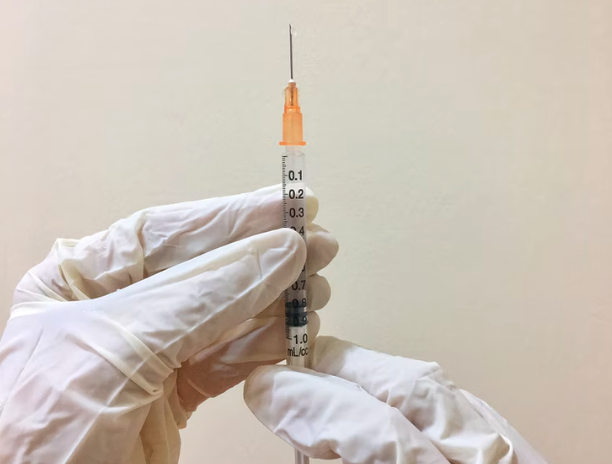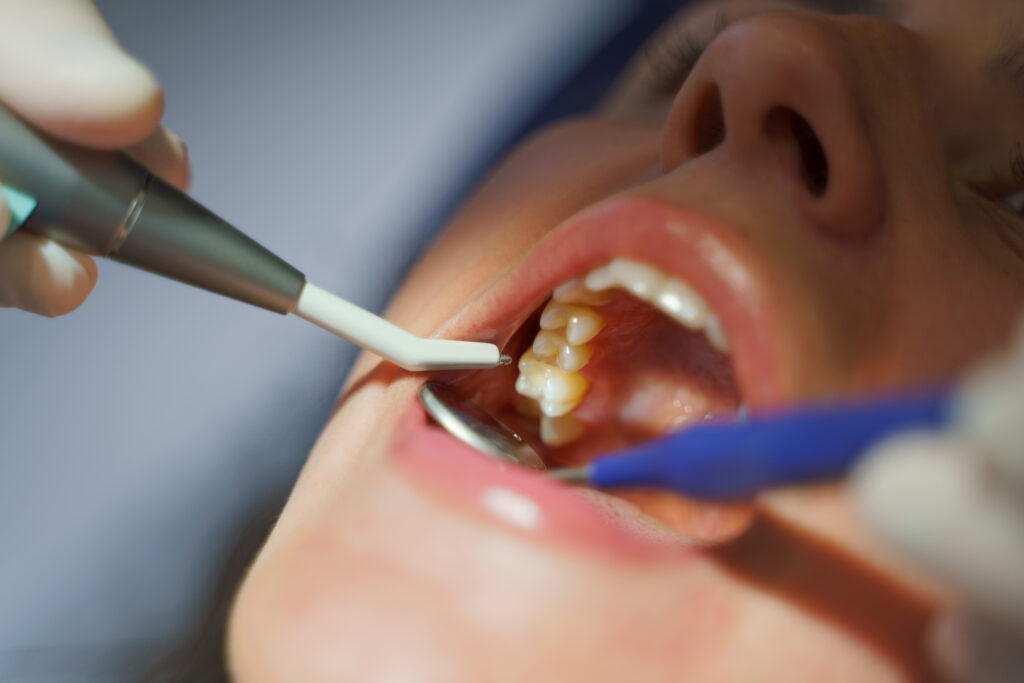Going to the dentist can bring up all sorts of questions, especially when it comes to the feeling you’re left with after a procedure. That “rubber-face” sensation, the slurred speech, the unintentional biting of your cheek or tongue without even realizing it—we’ve all been there.
But what’s really happening when your dentist numbs your mouth, and how long will it take to feel normal again? This guide breaks it all down for you, whether you’re getting ready for treatment or just curious to learn more. Plus, we’ll share why Lane & Associates Family Dentistry is the perfect place to make your dental care stress-free and pleasant.
How Long Will Numbing Last?
The short answer? Dental numbness typically lasts 1 to 3 hours, but it can sometimes stick around for 4 to 6 hours depending on a few factors. These include:
- The type of anesthetic your dentist used
- The location of the injection
- Your age, weight, and overall health
- How quickly your body metabolizes the anesthetic
For example, certain anesthetics, like those used during root canals or tooth extractions, are designed to last longer to get you through lengthier procedures.
However, if it feels like the numbness is wearing off too slowly or it persists beyond 24 hours, that’s your cue to call the dentist for a quick check-in.
At Lane & Associates, we assess every patient carefully and tailor the type and amount of anesthesia to fit your needs perfectly. Your comfort and safety always come first!
Does It Ever Go Away Faster?
Yes! Your body will naturally metabolize the anesthetic over time, but your recovery can sometimes be sped up. More on that in the post-procedure care tips below!
The Science Behind Local Anesthesia
Ever wonder how local anesthesia actually works? The secret lies in how it interacts with your nervous system. Before getting into the nitty-gritty, think about what normally happens when you feel pain. Your brain gets signals from your nerves—for example, “Ouch, I just banged my elbow.”
Local anesthesia temporarily blocks those signals from traveling to your brain. Essentially, it disrupts the communication between the affected nerves and your brain, keeping you pain-free while your dentist works.
Types of Local Anesthesia
There are two main kinds of local anesthetics used during dental visits:
- Topical Anesthesia
This is applied directly to the surface of your gums, usually with a gel or spray, to numb the area before an injection. It minimizes the sting from the needle. - Injectable Anesthesia
This is the more common type for procedures like fillings or extractions. Injected directly near the nerve, it blocks sensations in the surrounding area until the procedure is complete.
Science aside, isn’t it amazing how far dentistry has come? Say goodbye to the days of enduring tooth pain during dental treatments.
Common Dental Procedures Requiring Numbing
If you’re headed into a dental procedure and aren’t sure if numbing will be involved, here are some common examples where local anesthesia is used:
Treating cavities involves removing decay, which can be sensitive without numbing. Your dentist will numb the area before getting started so you won’t feel a thing.
When capping a damaged tooth, numbing is often used during the process of reshaping the existing tooth and fitting the new crown.
3. Root Canals
A root canal gets rid of infected tissue in the tooth’s nerve chamber. Sounds intimidating, but with local anesthesia, you’ll feel surprisingly comfortable.
The idea of pulling a tooth might seem scary, but strong numbing agents ensure you won’t feel any pain, just some pressure.
For gum disease treatments, numbing keeps sensitive gum tissue from becoming irritated during the procedure.
Each of these procedures might sound complex or uncomfortable, but rest assured Lane & Associates prioritizes painless dentistry. We’ll walk you through what to expect during your visit so there are no surprises.
Procedures That May Not Require Numbing
Not every dental procedure requires local anesthesia. Here are some treatments where you’re likely to stay numb-free:
- Teeth Cleanings: Unless there’s significant tartar buildup causing sensitivity, cleanings are often harmless and pain-free.
- X-rays: A snap of your teeth here, an image there, and you’re good to go. No numbing necessary.
- Teeth Whitening: Whether you’re working toward sparkling white teeth in-office or at home, whitening typically causes only mild sensitivity.
If you’re someone who gets nervous even about smaller procedures, Lane & Associates offers ways to help you feel more at ease—from answering all your questions to using optional numbing aids during cleanings if needed.
Common Myths About Dental Numbing
Myth 1: Getting Numb Hurts
Many people assume the needle’s sting will be unbearable, but that’s usually not the case. Dentists use topical numbing gel on your gums before injecting, so all you feel is a small pinch.
Myth 2: Numbing Doesn’t Work for Everyone
Modern anesthetics are incredibly effective. If you feel like it’s not kicking in, your dentist can adjust the dosage or try another technique to improve your comfort.
Myth 3: The Feeling Takes Forever to Wear Off
While it may feel like you’ll be numb forever, the sensation wears off faster than you think. And if necessary, there are steps you can take to help speed things along.
Don’t believe the rumors; ask your dentist about any concerns and get the facts straight!
How to Reduce Numbing Side Effects
If you’re eager to get rid of the numbness and return to normal, here are a few practical tips:
- Stay Hydrated: Drinking water can help flush the anesthetic out of your system faster.
- Use Warm Compresses: Once your dentist gives you the green light, gently applying warmth outside your cheek can stimulate blood flow.
- Engage in Light Activity: Walking or mild movement boosts circulation, which can help speed things up.
- Avoid Alcohol: It’s best to stay clear of alcohol while your body processes the anesthesia.
And remember to avoid chewing! It’s easy to accidentally bite your cheek, lip, or tongue when you can’t feel what’s happening. Soft, non-chewy foods are your best bet until full sensation is back.
Why Lane & Associates is Your Go-To for Comfortable Dental Care
At Lane & Associates Family Dentistry, we make your comfort our mission. We’ve spent over 40 years perfecting our patient-first approach, from using the latest dental technologies to creating a welcoming atmosphere.
Here’s Why Patients Trust Us:
- Wide Range of Services: From general care to more specialized treatments, we’ve got everything your smile needs under one roof.
- Customized Comfort Options: Anxious about your visit? We offer sedation options for a truly stress-free experience.
- Convenient Locations: With offices throughout North Carolina, Lane & Associates makes visiting your dentist easier than ever.
Your smiles are our passion, and we want to help you feel confident every step of the way.
Don’t Wait to Put Your Smile First
Whether it’s preventive care or more advanced procedures, Lane & Associates is ready to help. Visit Lane & Associates today to schedule your appointment and experience dental care tailored just for you.
Final Thoughts
Numbing at the dentist doesn’t have to be confusing or intimidating. When you understand what’s happening and why, it’s easier to feel relaxed knowing you’re in experienced hands. At Lane & Associates, we’re here to make every visit smooth and comfortable with expert care that puts you first.
Take the next step for your oral health today. Schedule an appointment with us and discover why so many families trust Lane & Associates for their dental needs. We can’t wait to see you smile!





